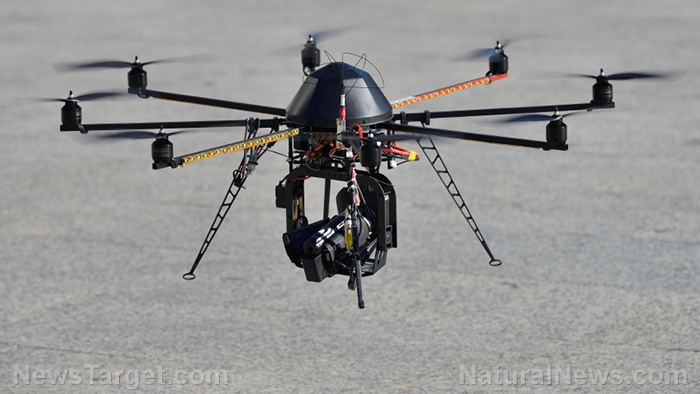Invasive Amazon.com now wants to monitor your refrigerator and track everything you eat
01/12/2017 / By Ethan Huff

As part of a joint project with Amazon.com, LG Electronics is planning to unveil a new “smart” refrigerator equipped with cameras and other spying equipment designed to monitor what people eat and keep track of their food purchasing habits. The refrigerator will reportedly work in tandem with Amazon’s “Echo” device to listen to, watch and track not only what’s inside the refrigerator, but also how people use it — all in the name of providing customers “a pleasurable cooking and dining experience,” of course.
At the recent CES 2017 expo event in Las Vegas, the Korean tech giant announced the “InstaView” fridge as the latest in cutting-edge food storage for the modern world. Equipped with a 29-inch, high-definition (HD) touchscreen display on the door, the InstaView fridge is basically a computer-slash-robot that can create shopping lists, check the weather and even set cooking timers. According to the online edition of the Daily Mail, it can even send text message notifications to users’ smartphones informing them of what needs to be purchased from the store.
Don’t feel like opening the door of the InstaView fridge to see what’s inside? No worries. The interior cameras can take a live scan and show you right on the HD display what’s there, a feature that LG claims prevents energy from being wasted — even though the camera and display both require energy to perform this function. The InstaView fridge also has its own built-in operating system that a family can use to leave each other notes or instructions, all of which the fridge itself uses to “learn” and customize features over time.
“Our Smart InstaView Door-in-Door refrigerator will allow users to enjoy their kitchen experience like never before,” announced Song Dae-Hyun, LG’s head of home appliances, before an eager tech crowd in Vegas. (Related: Stay up to date on electronic devices, privacy and surveillance technology at Glitch.news)
LG, Amazon want ‘tens of millions’ of smart devices to track people in their homes
Another so-called “feature” of LG’s InstaView fridge is that it has built-in Amazon Echo integration, allowing Amazon’s “Alexa” personal assistant to listen in on users’ conversations and “take notes.” LG is marketing the concept as an exclusive way to enhance users’ experiences with the fridge, but from a privacy perspective it implies even further risk of invasive spying or tracking by potential hackers.
And LG isn’t stopping with just the InstaView fridge; the company’s vice president of marketing, David VanderWaal, told expo attendees that, starting in 2017, LG will be equipping all of its home appliances with “advanced WiFi connectivity,” describing the change as a way to unleash “tens of millions of smart connected devices” into consumers’ homes.
This means that any future products sold by LG, whether they be televisions, washers and dryers, or even kitchen stoves and microwaves, will be equipped with wireless capabilities that connect these appliances to the outside world. In other words, it will be a world without privacy — and a hacker’s paradise — not to mention all the added electromagnetic frequencies swirling around people’s homes.
For Amazon, this brave new world will spell higher profits, as customers will be pushed by every new WiFi- or Echo-equipped appliance to purchase more Amazon products. Out of milk? Don’t worry; that InstaView fridge can tell “Alexa” to order you some more. Need more laundry detergent? Amazon’s got you covered with its Echo-integrated washers and dryers. And so on and so forth.
Following this trend is appliance manufacturer Whirlpool, which also plans to start integrating Amazon’s Alexa into its own “smart” appliances. Reports indicate that in 2017, Whirlpool plans to unveil 21 new WiFi-connected appliances that can be given verbal commands to perform various functions on their own, without human users even having to lift a finger. (Related: Follow more news on ways people are controlled in society by reading Sheeple.news)
Sources for this article include:
Tagged Under: Amazon, lg, privacy, smart refrigerator, spyware, surveillance




















